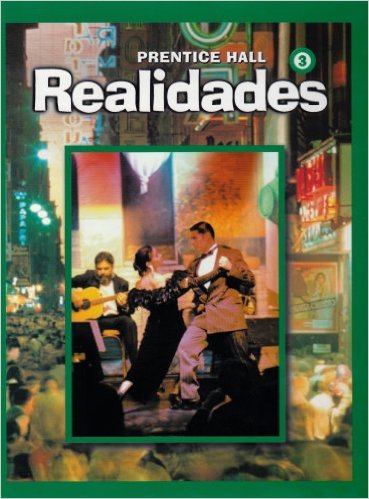
All Solutions
Page 137: Actividad 38
The subjunctive is also used with words like “ojalá”, “quizá”, after “que”, indicating a wish for something to happen or uncertainty that it is going to happen. Some other uses of the subjunctive are with emotions and feelings, wishes, doubt, hypothesis, etc.
We have “consejos” mentioned in the sentence, therefore we know we will use the verb “seguir” (take advice/seguir consejo).
The subject is you (tú). We will use the second person singular subjunctive form of the verb “seguir” (sigas).
The subjunctive is also used with words like “ojalá”, “quizá”, after “que”, indicating a wish for something to happen or uncertainty that it is going to happen. Some other uses of the subjunctive are with emotions and feelings, wishes, doubt, hypothesis, etc.
We have “cada noche” mentioned in the sentence, therefore we know we will use the verb “dormir”.
The subject is you (tú). We will use the second person singular subjunctive form of the verb “dormir” (duermas).
The subjunctive is also used with words like “ojalá”, “quizá”, after “que”, indicating a wish for something to happen or uncertainty that it is going to happen. Some other uses of the subjunctive are with emotions and feelings, wishes, doubt, hypothesis, etc.
We have “clases de ejercicio” mentioned in the sentence, therefore we know we will use the verb “sentarse”.
The subject is you (tú). We will use the second person singular subjunctive form of the verb “sentarse” (te sientes).
The subjunctive is also used with words like “ojalá”, “quizá”, after “que”, indicating a wish for something to happen or uncertainty that it is going to happen. Some other uses of the subjunctive are with emotions and feelings, wishes, doubt, hypothesis, etc.
We have “bicicleta” mentioned in the sentence, therefore we know we will use the verb “hacer” (hacer bicicleta/bike).
The subject is you (tú). We will use the second person singular subjunctive form of the verb “hacer” (hagas).
The subjunctive is also used with words like “ojalá”, “quizá”, after “que”, indicating a wish for something to happen or uncertainty that it is going to happen. Some other uses of the subjunctive are with emotions and feelings, wishes, doubt, hypothesis, etc.
We have “tenis” mentioned in the sentence, therefore we know we will use the verb “jugar” (jugar al tenis/play tennis).
The subject is you (tú). We will use the second person singular subjunctive form of the verb “jugar” (juegues).
The subjunctive is also used with words like “ojalá”, “quizá”, after “que”, indicating a wish for something to happen or uncertainty that it is going to happen. Some other uses of the subjunctive are with emotions and feelings, wishes, doubt, hypothesis, etc.
We have “ropa” mentioned in the sentence, therefore we know we will use the verb “vestirse” (to dress).
The subject is you (tú). We will use the second person singular subjunctive form of the verb “vestirse” (te vistas).
The subjunctive is also used with words like “ojalá”, “quizá”, after “que”, indicating a wish for something to happen or uncertainty that it is going to happen. Some other uses of the subjunctive are with emotions and feelings, wishes, doubt, hypothesis, etc.
We have “la clase” mentioned in the sentence, therefore we know we will use the verb “concentrarse” (to concentrate).
The subject is you (tú). We will use the second person singular subjunctive form of the verb “concentrarse” (te concentres).
The subjunctive is also used with words like “ojalá”, “quizá”, after “que”, indicating a wish for something to happen or uncertainty that it is going to happen. Some other uses of the subjunctive are with emotions and feelings, wishes, doubt, hypothesis, etc.
We have “cuántas” mentioned in the sentence, therefore we know we will use the verb “contar” (count).
The subject is you (tú). We will use the second person singular subjunctive form of the verb “contar” (cuentes).

